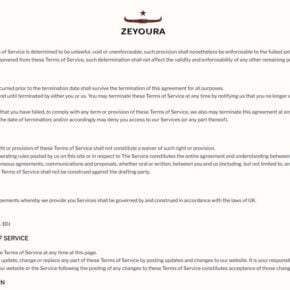Scams have become increasingly prevalent in the digital age, with scammers finding new and creative ways to deceive unsuspecting individuals. One such scam that has gained traction in recent years is the Walmart ‘Free 85% Off Coupon’ Facebook scam. This article aims to shed light on what this scam is, how it works, what to do if you have fallen victim, and provide valuable insights to help readers protect themselves from falling prey to similar scams.
![Walmart ‘Free 85% Off Coupon’ Facebook Scam [Explained] 1 Scams](https://malwaretips.com/blogs/wp-content/uploads/2023/07/Scams.jpg)
What is the Walmart ‘Free 85% Off Coupon’ Facebook Scam?
The Walmart ‘Free 85% Off Coupon’ Facebook scam is a deceptive scheme that aims to trick users into believing they can obtain a significant discount at Walmart by clicking on a link or participating in a survey. Scammers often create fake Facebook pages or posts that appear to be affiliated with Walmart, complete with the company’s logo and branding. These posts claim that users can receive an 85% discount coupon by following the provided instructions.
How Does the Scam Work?
The scam typically begins with a Facebook post or advertisement that catches the attention of users. The post may claim that Walmart is offering an exclusive deal, such as an 85% off coupon, to celebrate a special occasion or anniversary. Users are then prompted to click on a link or participate in a survey to claim the coupon.
Once users click on the link or engage in the survey, they are redirected to a website that appears to be legitimate. The website may ask users to provide personal information, such as their name, address, and email, or it may prompt them to download a file or install a browser extension. In reality, these actions are designed to collect sensitive information or install malware on the user’s device.
Examples of the Walmart ‘Free 85% Off Coupon’ Facebook Scam
- A Facebook post claiming that Walmart is giving away 85% off coupons to celebrate its anniversary.
- An advertisement on Facebook offering an exclusive deal for a limited time, enticing users to click on the link.
- A sponsored post on Facebook that appears to be from Walmart, promising huge discounts for a limited number of users.
What to Do If You Have Fallen Victim
If you have fallen victim to the Walmart ‘Free 85% Off Coupon’ Facebook scam, it is important to take immediate action to protect yourself and minimize the potential damage.
- Disconnect from the internet: If you suspect that your device may have been compromised, disconnect from the internet to prevent further unauthorized access.
- Scan your device for malware: Run a scan with a reputable antivirus software, such as Malwarebytes Free, to detect and remove any malicious software.
- Change your passwords: Change the passwords for all your online accounts, especially those associated with sensitive information such as banking or email accounts.
- Monitor your accounts: Keep a close eye on your financial accounts and credit reports to detect any unauthorized activity.
- Report the scam: Report the scam to the appropriate authorities, such as your local law enforcement agency and the Federal Trade Commission (FTC).
Protecting Yourself from Similar Scams
While it is impossible to completely eliminate the risk of falling victim to scams, there are several steps you can take to protect yourself:
- Be skeptical of too-good-to-be-true offers: If an offer seems too good to be true, it probably is. Exercise caution and do your research before clicking on any suspicious links or providing personal information.
- Verify the source: Before engaging with any online promotion or offer, verify the legitimacy of the source. Check the official website or social media accounts of the company to see if the promotion is mentioned.
- Keep your software up to date: Regularly update your operating system, web browsers, and antivirus software to ensure you have the latest security patches and protection against known vulnerabilities.
- Use strong, unique passwords: Create strong, unique passwords for each of your online accounts and consider using a password manager to securely store them.
- Enable two-factor authentication: Enable two-factor authentication whenever possible to add an extra layer of security to your online accounts.
Summary
The Walmart ‘Free 85% Off Coupon’ Facebook scam is a deceptive scheme that aims to trick users into believing they can obtain a significant discount at Walmart. Scammers create fake Facebook pages or posts that appear to be affiliated with Walmart and prompt users to click on a link or participate in a survey. Once users engage with the scam, their personal information may be compromised, or malware may be installed on their devices.
If you have fallen victim to the scam, it is crucial to take immediate action by disconnecting from the internet, scanning your device for malware, changing your passwords, monitoring your accounts, and reporting the scam. To protect yourself from similar scams, be skeptical of too-good-to-be-true offers, verify the source, keep your software up to date, use strong, unique passwords, and enable two-factor authentication whenever possible.


